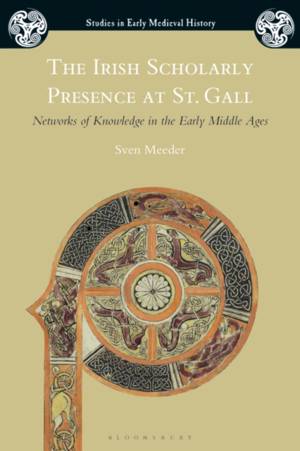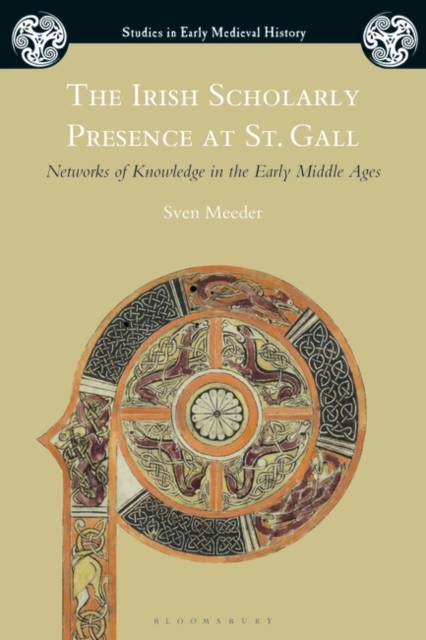
Bedankt voor het vertrouwen het afgelopen jaar! Om jou te bedanken bieden we GRATIS verzending (in België) aan op alles gedurende de hele maand januari.
- Afhalen na 1 uur in een winkel met voorraad
- In januari gratis thuislevering in België
- Ruim aanbod met 7 miljoen producten
Bedankt voor het vertrouwen het afgelopen jaar! Om jou te bedanken bieden we GRATIS verzending (in België) aan op alles gedurende de hele maand januari.
- Afhalen na 1 uur in een winkel met voorraad
- In januari gratis thuislevering in België
- Ruim aanbod met 7 miljoen producten
Zoeken
€ 271,45
+ 542 punten
Uitvoering
Omschrijving
The Carolingian period represented a Golden Age for the abbey of St Gall, an Alpine monastery in modern-day Switzerland. Its bloom of intellectual activity resulted in an impressive number of scholarly texts being copied into often beautifully written manuscripts, many of which survive in the abbey's library to this day. Among these books are several of Irish origin, while others contain works of learning originally written in Ireland. This study explores the practicalities of the spread of this Irish scholarship to St Gall and the reception it received once there. In doing so, this book for the first time investigates a part of the network of knowledge that fed this important Carolingian centre of learning with scholarship.
By focusing on scholarly works from Ireland, this study also sheds light on the contribution of the Irish to the Carolingian revival of learning. Historians have often assumed a special relationship between Ireland and the abbey of St Gall, which was built on the grave of the Irish saint Gallus. This book scrutinises this notion of a special connection. The result is a new viewpoint on the spread and reception of Irish learning in the Carolingian period.
By focusing on scholarly works from Ireland, this study also sheds light on the contribution of the Irish to the Carolingian revival of learning. Historians have often assumed a special relationship between Ireland and the abbey of St Gall, which was built on the grave of the Irish saint Gallus. This book scrutinises this notion of a special connection. The result is a new viewpoint on the spread and reception of Irish learning in the Carolingian period.
Specificaties
Betrokkenen
- Auteur(s):
- Uitgeverij:
Inhoud
- Aantal bladzijden:
- 200
- Taal:
- Engels
- Reeks:
Eigenschappen
- Productcode (EAN):
- 9781350038677
- Verschijningsdatum:
- 22/03/2018
- Uitvoering:
- Hardcover
- Formaat:
- Genaaid
- Afmetingen:
- 156 mm x 234 mm
- Gewicht:
- 458 g

Alleen bij Standaard Boekhandel
+ 542 punten op je klantenkaart van Standaard Boekhandel
Beoordelingen
We publiceren alleen reviews die voldoen aan de voorwaarden voor reviews. Bekijk onze voorwaarden voor reviews.









